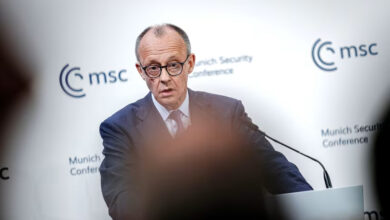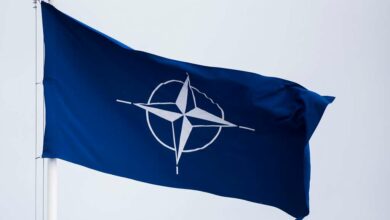Afghanistan–Afghanistan President Hamid Karzai may not always do and say what NATO allies would like, but he is a willing and necessary partner, NATO’s secretary- general said on Thursday.
"In general, we have very good cooperation from President Karzai and his government and such cooperation is essential for our strategy in Afghanistan," Anders Fogh Rasmussen said after a speech at the University of Chicago.
Rasmussen focussed in his speech on NATO’s multi-pronged approach to building a democracy in Afghanistan and said a combination of military and civilian efforts was beginning to bear fruit.
Asked to comment afterward on Karzai’s recent war of words with Washington over last year’s contested election and U.S. concerns not enough was being done to fight corruption, Rasmussen said the important thing was to hold Karzai accountable.
"President Karzai made quite strong commitments to improved governance, including strengthening the fight against corruption. That’s what counts, delivery on promises," he said.
"Obviously, the electoral process was problematic" and not up to Western standards, he added.
"We would like Afghanistan to develop a democratic system. To that end, we would respect a free and public debate. That’s a fact of life.
"He is the political figure with whom we much engage in Afghanistan. … He’s the man with whom we can and will and must cooperate," he said.
Rasmussen said it was too early to say what the impact of the uprising in Kyrgyzstan might have, but he insisted it would have "no operational consequences" on NATO’s effort in Afghanistan.
It was unclear if the self-declared interim government in Kyrgyzstan would allow the U.S. base at Manas to remain open and keep supplying U.S. forces in Afghanistan. Pentagon officials said alternative supply routes could be used.
On the subject of a missile defence system to defend Europe, the United States and possibly Russia, Rasmussen was hopeful an agreement could be worked out by the end of the year despite budget constraints.
NATO countries as well as Russia face a common threat, notably from Iran, he said.
Thursday’s signing of the U.S.-Russia nuclear arms reduction pact showed what could be accomplished, he added.
"If Russia does not consider a U.S.-NATO missile defence system as a threat, but they have actually joined, then they can also reduce their stocks of weapons," Rasmussen said.




